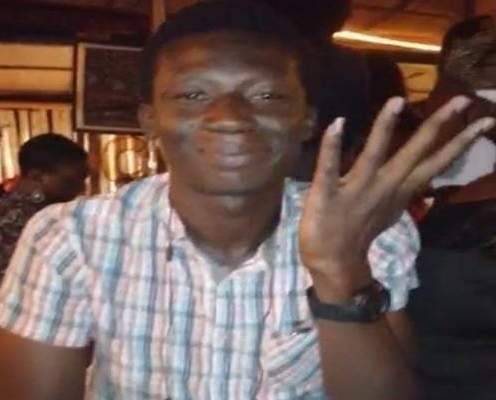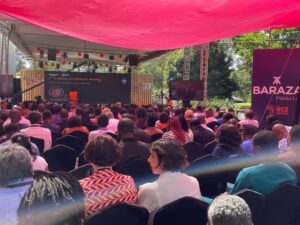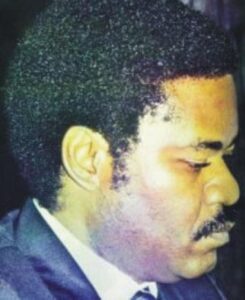Wale Fatade writes on the recent death of a youth corps member with Channels TV while covering the Shi’ites protests in Abuja
Ijeoma Onyeator could not contain herself on Monday, July 22, while anchoring the 10 pm news on Channels TV. She tried but failed, in holding back tears as she reported the killing of Precious Ayoola Owolabi, a National Youth Service Corps member, who was shot dead as he covered the Shi’ites protest of that day in Abuja. I shed some tears too as a father and it was one of those few moments a newscaster’s emotional display is understandable and pardonable. Surely, all journalism ethics teachers will agree with such a view.
Owolabi’s death was reported with dignity and as much as the emotional intelligence of his colleagues could accommodate bearing in mind they worked together and could have suffered the same fate as the 21-year old. We must also not forget that their feelings must be raw on the same day they lost their colleague. Ever since news broke earlier that day that a Channels reporter was shot, I prayed that it would not result in death remembering how the station lost Enenche Akogwu who was shot dead on January 20, 2012. Boko Haram terrorists killed Akogwu in Kano when he decided to investigate the bombs and explosions he and his colleague heard earlier that day. Sadly, Owolabi paid with his life. Painfully, the NYSC management, especially the FCT state coordinator, did not deem it fit to be present at his funeral in Zaria, Kaduna State preferring instead to be represented by a zonal coordinator.
To those criticizing Channels management for sending a rookie to cover a protest, I’m sure they have their answer in Owolabi’s commitment to his work and dedication to journalism that he even worked on Sundays all in a bid to do more than was required of him. All of us started that way, trying to impress our bosses and willing to do anything to justify our employment and prove our commitment to a profession that if you’ve caught the bug, nothing can cure you of its effects. I recollect vividly as one who started journalism under a military dictatorship, how demonstrations and agitations used to excite us as we will have plenty of stories to report and many opportunities to get bylines. The young man was simply doing his job.
While there have been condemnations from media groups, the Nigeria Union of Journalists (NUJ) through the president, Chris Isiguzo, also joined in the condemnation train as reported in this story https://www.dailytrust.com.ng/nuj-urges-buhari-to-overhaul-security-architecture.html at an event in Lokoja, Kogi State. Perhaps, the most befitting tribute was the one by The Nation newspaper, which actually deemed it fit to run his burial story on the front page, enriched with interviews with his parents. “He used to tell us he would become famous….I never thought he meant to say he would be famous in death,” said the mother in this story https://thenationonlineng.net/tearful-farewell-for-channels-tv-man-precious/ The father too shed more light on his late son’s age when he said he graduated at 20 and embarked on NYSC thereafter. Some of the stories on Owolabi’s death put his age at 23 instead of 21.
The Committee to Protect Journalists (CPJ) in its news alert on Owolabi’s murder https://cpj.org/2019/07/nigeria-channels-tv-protest-shot-precious-owolabi.php raised what should preoccupy Owolabi’s colleagues in newsrooms across the land. There ought to be a thorough investigation into his death and while one can see that the Police spokesperson’s comments in the CPJ alert was a little bit evasive, journalists can pick up the pieces of Owolabi’s death and investigate who exactly shot him dead. We should never forget that any other reporter on duty that day could have been killed as well. Further, it is high time we went behind the scenes and not rely on the explanations by security agents whenever a colleague is gunned down like Owolabi. Unexpectedly, the police officer that was killed also during the protest has been buried because of his faith, but painfully there was no autopsy to determine the specific manner he was killed.
The same questions deserve an answer in Owolabi’s death. Who fired the shot? A security agent or protester? Fine, determining such will not bring back the young man, but we can expand the frontiers of our democratic culture more when we all get attuned to protest and dissent, which are democratic norms globally. Owolabi’s death also calls for greater scrutiny on what passes for journalists’ welfare in our country. It is doubtful if we have life insurance for experienced reporters talk less of rookies even though the Pension Act mandates employers with five or more employees to have group life insurance. Sadly though, Owolabi was not an employee in the strict sense of it as he was an NYSC member. It’s another moment to examine journalists’ welfare again and see what ought to be done in cushioning deaths on active duty.
That newsroom aphorism holds true still, no story is worth your life as a reporter. Stay safe, dear colleagues and condolences to the Owolabi family and Channels TV.






